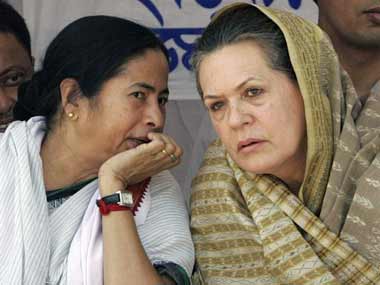
New Delhi, May 12: Ruling out a mid-term poll, the Congress on Saturday reacted to West Bengal chief minister Mamata Banerjee's claim that the Lok Sabha polls would be advanced, and said the United Progressive Alliance (UPA)-II will complete its full term.
"I have not gone through the statement given by Banerjee, but one thing is clear the UPA -II will complete its term and elections will be held on the scheduled time. There is no question of any mid-term poll, Dr Manmohan Singhji-led government will complete its full term. I can specifically say that the election would be held as per schedule," said Congress spokesperson Rashid Alvi.
Alvi's reaction came as Banerjee, addressing party workers Friday in Kolkata, claimed that she has got information that a certain political party held an internal meeting in Delhi on advancing the Lok Sabha polls to 2013.
Trinamool Congress president and West Bengal chief minister Mamata Banerjee asked her party workers to be ready for the polls.
"I have got the information that such a meeting was held in Delhi. I won't say now which party convened that meeting. They want to hold the Lok Sabha polls by 2013," she said.
"Any day, we can face the election. So, we must be ready to face it. And we must not do anything that the people misunderstand me," Banerjee said.
The term of the present Lok Sabha ends in 2014.




Comments
Add new comment